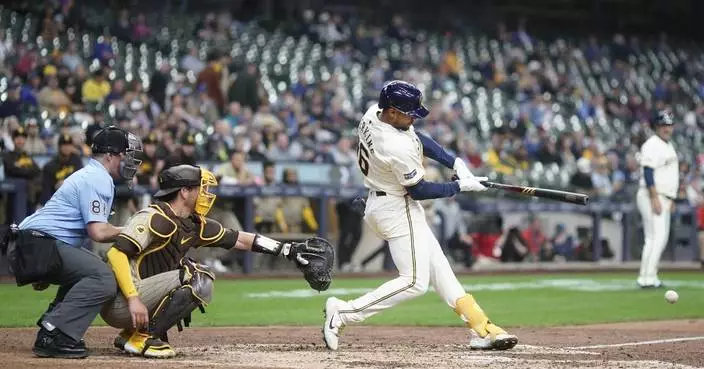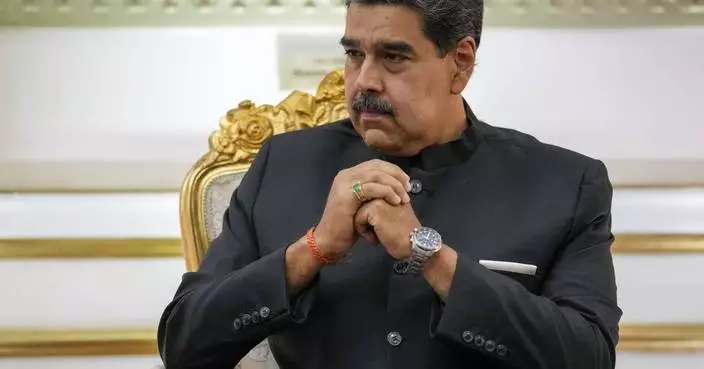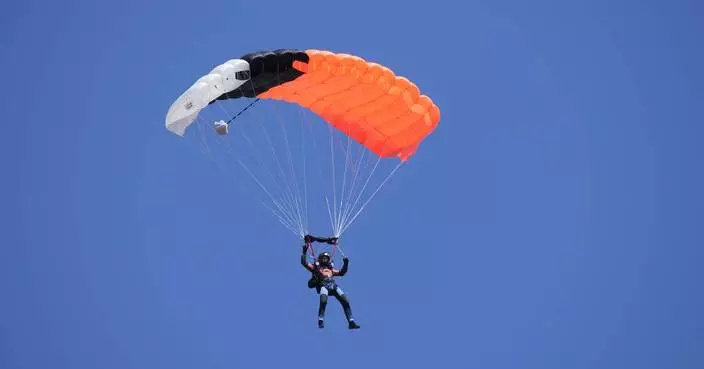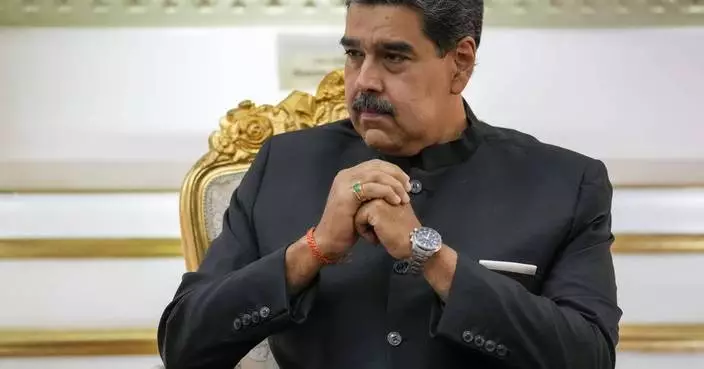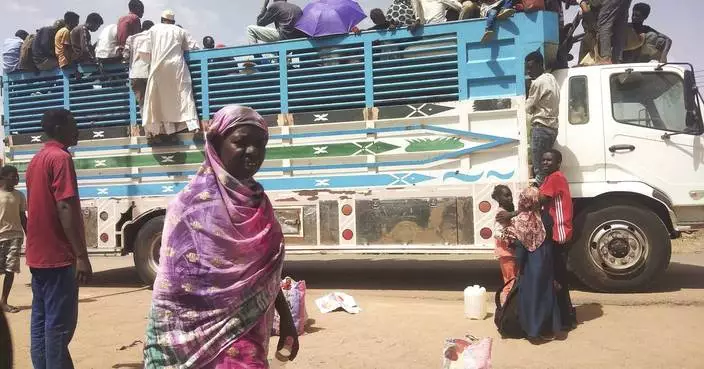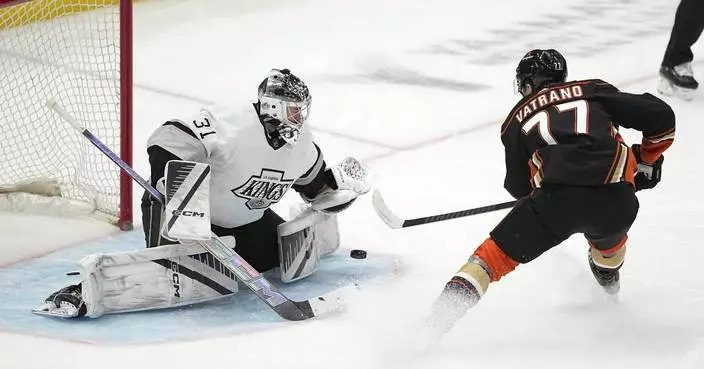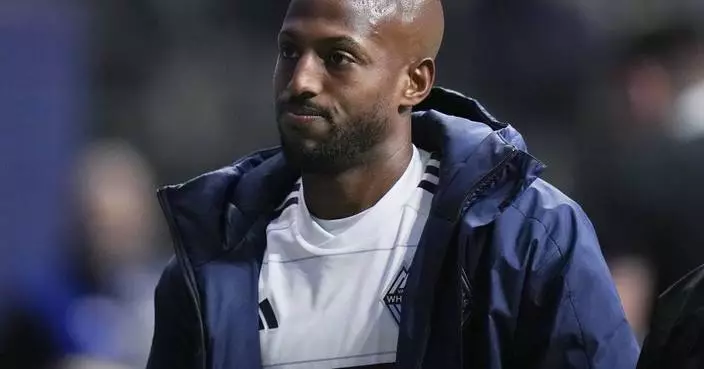The lights have gone out across much of Venezuela, snarling traffic in the capital and reviving fears of the blackouts that plunged the country into chaos a few months ago.
The power in the capital went out after 4 p.m. (2000 GMT) and immediately backed up traffic as stop lights and the subway stopped working during rush hour.
"This is horrible, a disaster," Reni Blanco, a 48-year-old teacher, said as she joined a crush of people who flooded into the streets of the capital trying to make it home before nightfall.
Authorities have yet to comment and it was unclear the scale of the outage.
But there were reports on social media that 19 of 24 Venezuelan states were also affected. Netblocks, a group monitoring internet activity, said network data showed most of Venezuela was knocked offline with national connectivity at just 6% after the latest cuts. The normally non-stop state TV channel, a key way for the government to keep people informed, was also off the air, leaving frustrated Venezuelans to wonder how long they would be left in the dark.
Blackouts roiled the country in March, leaving much of the capital without power and water for almost a week. President Nicolás Maduro blamed the outage on a U.S.-sponsored "electromagnetic attack" against the nation's biggest hydroelectric dam. More recently, as power service in the politically crucial capital has improved amid widespread rationing in the interior, officials have even taken to downplaying the outages as similar to recent ones in Argentina and even one that knocked off the power for several thousand residents of Manhattan for a few hours amid the summer heat.
But his opponents said the outage laid bare years of underinvestment in the nation's grid by corrupt officials who mismanaged an oil bonanza in the nation sitting atop the world's largest crude reserves.
"They tried to hide the tragedy by rationing supplies across the country, but their failure is evident: they destroyed the system and they don't have answers," opposition leader Juan Guaidó said on Twitter.
Guaidó, who the U.S. and more than 50 other nations recognize as Venezuela's rightful leader, reiterated an earlier call for nationwide protests on Tuesday.
"We Venezuelans won't grow accustomed to this," he said.
Much of the government's focus since the March blackouts has been on repairing transmission lines near the Guri Dam, which provides about 80 percent of Venezuela's electricity.
José Aguilar, a power expert who lives in the U.S. but hails from Venezuela, said that alternative power plants running on diesel fuel and gas are unable to make up the difference.
"Venezuela simply doesn't have enough megawatts available," he said on Twitter. "Any failure shuts down the entire system."
Despite the risks of another extended collapse, some Venezuelans were taking the blackout in stride.
Cristian Sandoval, a 37-year-old owner of a motorcycle repair business, said he is more prepared for a prolonged outage having equipped his home with a water tanks and a generator for his worship. As Venezuela's crisis deepens, the sale of electric generators is one of the few growth industries in a country ravaged by six-digit inflation and cratering public services.
"If the blackout continues we'll have another round of dessert," he chuckled while sharing a piece of chocolate cake with a friend at a cafeteria growing steadily dark as the night began to fall.
"But it's very difficult for the people," he conceded. "This creates a lot of discomfort."
NCAA athletes will be immediately eligible to play no matter how many times they transfer — as long as they meet academic requirements — after the association fast-tracked legislation Wednesday to fall in line with a recent court order.
The NCAA announced the Division I Council's decision becomes official Thursday when its meeting adjourns. The change still needs to be ratified by the DI Board next week, but that is expected.
The new rules will go into effect immediately, though in reality they have already been enacted through a lawsuit filed late last year.
Transfer windows, which are sport-specific, remain in place and require undergraduate athletes to enter their names into the portal at certain times to be immediately eligible at a new school. Graduate students can already transfer multiple times and enter the portal outside the windows while maintaining immediate eligibility.
A coalition of state attorneys general late last year sued the NCAA, challenging rules that forced athletes that wanted to transfer multiple-times as undergraduates to sit out a season with their new school.
A judge in West Virginia granted the plaintiffs a temporary injunction, lifting requirements for multiple-time transfers to request a waiver from the NCAA to be immediately eligible to compete.
The NCAA quickly requested the injunction be kept in place throughout the remaining school year to clear up any ambiguity for athletes and schools. The association has had to issue guidance to its members to clarify what that means for next season. Now the rules match the court ruling.
By eliminating the so-called year-in-residence for transfers, an athlete must be academically eligible at the previous school and not subject to any disciplinary suspension or dismissal to compete immediately at a new school. Transferring athletes must also meet progress-toward-degree requirements before competing.
“We hope that this practical approach to transfer eligibility requirements will encourage student-athletes to make well-informed decisions about transferring and the impacts such a move could have on their ability to graduate on time in their degree of choice, particularly as it relates to transferable credits,” Florida deputy athletic director and council chairwoman Lynda Tealer said in a statement.
The board will ask the committee on academics to explore creating a new metric — similar to the NCAA's Academic Progress Rating — that would hold schools accountable for graduating the transfers they accept.
The portal windows are currently open for both football and basketball, and the lifting of restrictions on multiple-time transfers has led to an uptick in athletes looking to switch schools.
In a notable move that would not have been permissible without a waiver under previous rules, Alabama offensive tackle Kadyn Proctor entered the portal in January after Crimson Tide coach Nick Saban retired, committed to Iowa, but then changed his mind during the spring and has reentered the portal with the intention to reenroll at Alabama.
The DI Council also moved forward on legislation that would allow schools to be more actively involved in securing sponsorship deals for their athletes. Schools could still not directly pay athletes, but they could facilitate NIL opportunities between third parties and athletes.
AP Sports Writer John Raby in Charleston, West Virginia, contributed to this report.
Follow Ralph D. Russo at https://twitter.com/ralphDrussoAP and listen at http://www.appodcasts.com
AP college football: https://apnews.com/hub/college-football
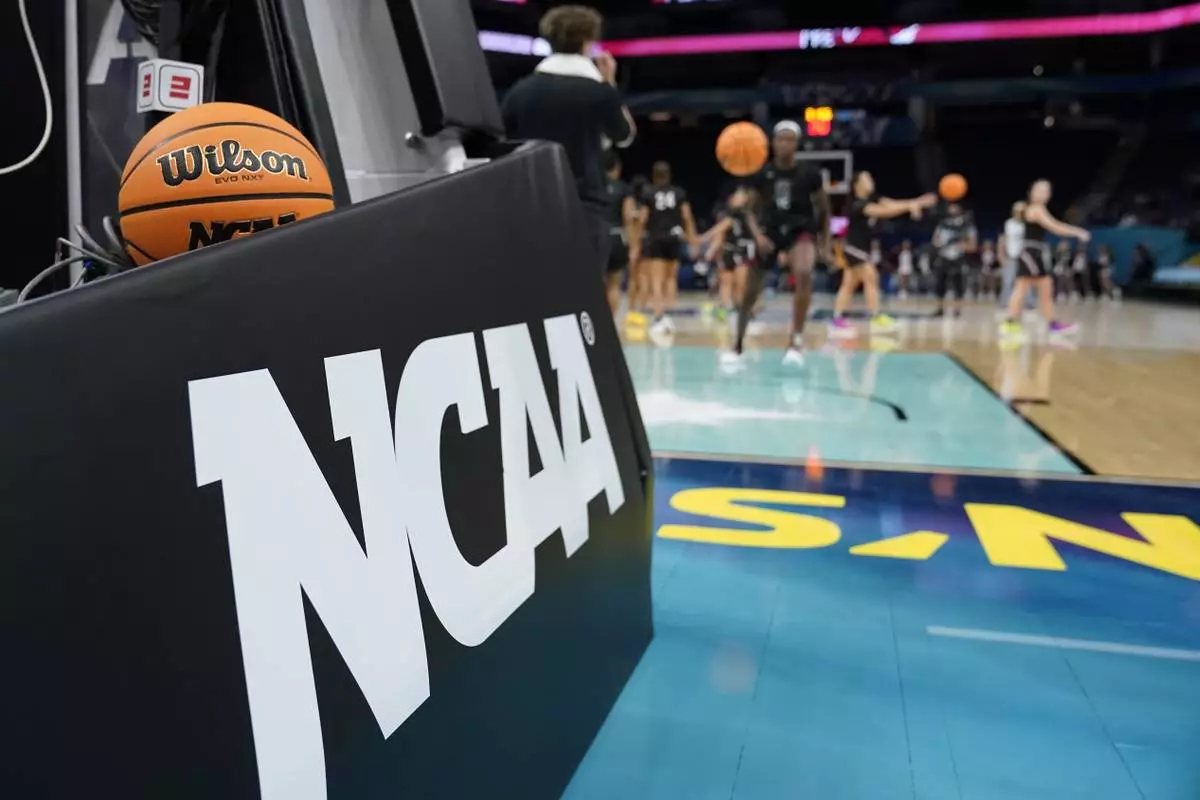
FILE - South Carolina players work out during a practice at the Women's Final Four NCAA college college basketball tournament, Saturday, April 2, 2022, in Minneapolis. NCAA athletes will be immediately eligible to play no matter how many times they transfer — as long as they meet academic requirements — after the association fast-tracked legislation Wednesday, April 17, 2024, to fall in line with a recent court order. (AP Photo/Eric Gay, File)
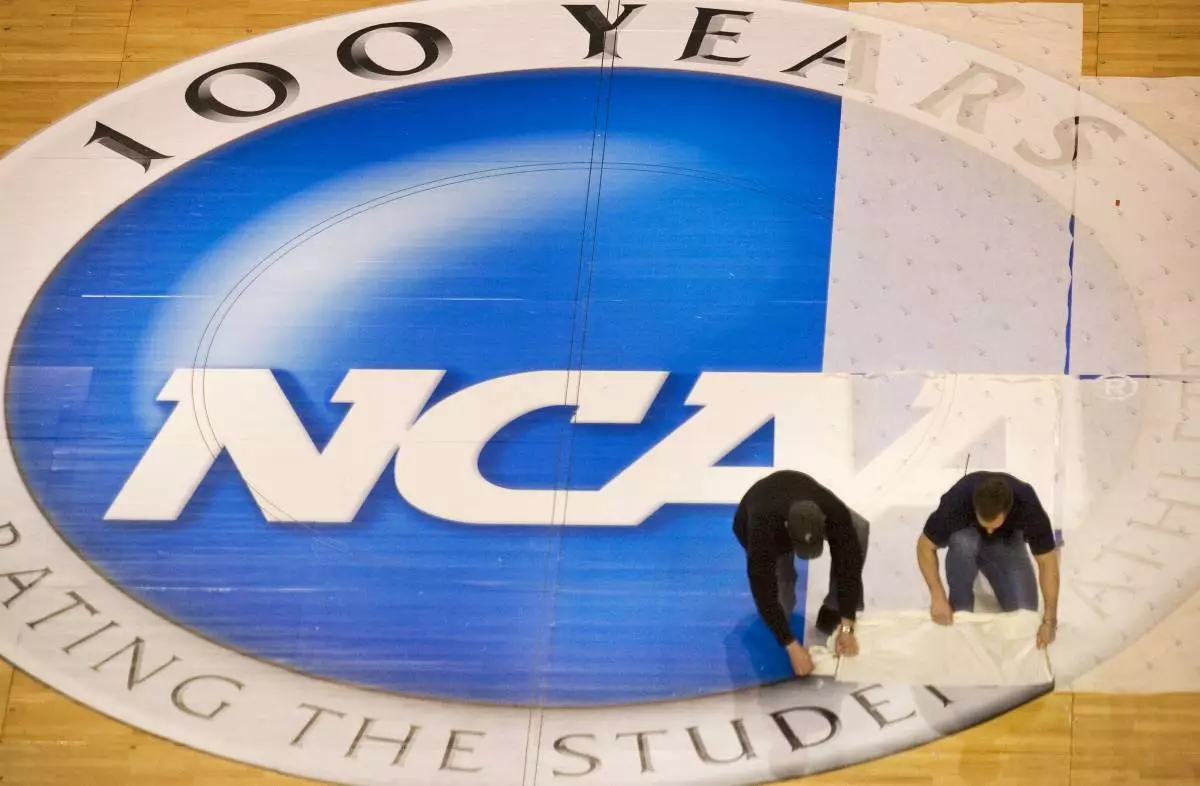
FILE - Wachovia Center operations manager Jim McDonald, left, and carpenter foreman Tim Allen remove the protective film covering the NCAA logo at mid-court on the center's basketball court, Wednesday, March 15, 2006, in Philadelphia. NCAA athletes will be immediately eligible to play no matter how many times they transfer — as long as they meet academic requirements — after the association fast-tracked legislation Wednesday, April 17, 2024, to fall in line with a recent court order. (Ed Hille/The Philadelphia Inquirer via AP, FIie)





